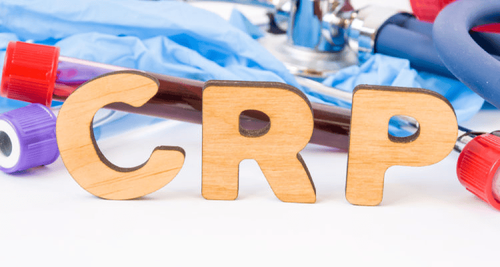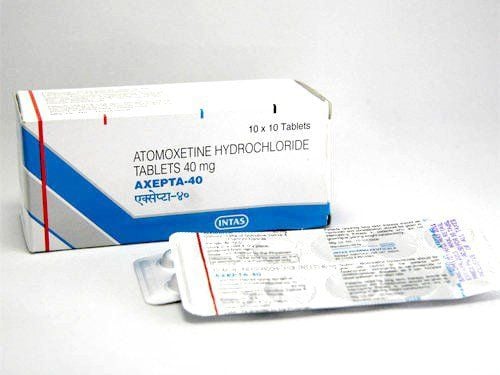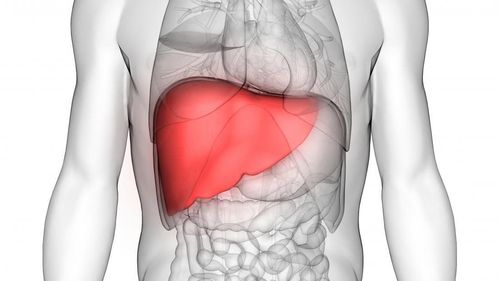This is an automatically translated article.
Blood test is considered an important step in annual health checkups, helping you detect potential diseases early such as cardiovascular disease, diabetes, HIV,... Blood tests are also important. helps to check if certain substances and processes in the body are working properly, thereby providing appropriate adjustment methods.
1. How often should routine blood tests be done?
Generally, a doctor will recommend that people have a routine blood test at least once a year during their annual check-up. Having important blood tests done can be helpful for you in the following situations:
You are experiencing some unusual, persistent symptoms or health problems, such as fatigue , Uncontrolled weight gain or body aches. You want to know the levels of various components in your blood, including total cholesterol, good cholesterol (HDL), bad cholesterol (LDL), and triglycerides. Your blood test results will help you better tailor your diet and exercise plan to your healthy health goals. Moreover, this also helps you to maximize the absorption of nutrients in the body. You want to reduce your risk of chronic diseases and their complications. Having annual blood tests will help detect early warning signs of almost any disease, especially heart, kidney or lung disease. If you'd like to increase the frequency of blood tests over the course of a year, talk to your healthcare professional for specific advice.
2. Why do some blood tests require fasting before taking them?
The things that you consume, including food and drinks, contain proteins, vitamins and other nutrients, which can temporarily alter (increase/decrease) the levels of substances in your blood. Therefore, doctors often recommend that patients fast for 8-12 hours before taking blood tests to help obtain the most accurate results.
Below are common types of blood tests that usually require you to fast before the test, including:
Cholesterol tests. Blood sugar test. Renal function test. Liver function test. Glucose test. Basal metabolic panel.
3. How long does it take to get blood test results?
Usually, the results of various types of blood tests will take from a few hours to several days. Here's an overview of the times for some of the most common types of blood tests:
Complete blood count (CBC): Takes about 24 hours. Basal Metabolic Table: Takes about 24 hours. Complete Metabolic Table: Takes 24-72 hours. Lipid panel: Takes about 24 hours. In general, the time it takes to get results will depend on the specific lab where you're tested, or how many tests you have at one time. Sometimes the lab will only report the results to the doctor, who will then evaluate and then release the results to you.

Tùy vào loại xét nghiệm máu và phòng thí nghiệm mà thời gian trả kết quả sẽ khác nhau
4. 10 important blood tests that you should keep in mind
Here are 10 important blood tests for adults to keep in mind and perform regularly. Specifically:
4. 1. CBC (complete blood count) test A complete blood count (CBC) test will help you check the levels of 10 different components of every major cell in your blood , including red blood cells, white blood cells, and platelets. Important components commonly measured by this blood test will include red blood cell count, hematocrit, and hemoglobin.
If the CBC test results show an abnormality in the levels of these components, this indicates that you are experiencing the following health problems:
Nutrient deficiencies, especially vitamin B6 and B12. Iron deficiency. Have bone marrow problems. Infection . Tissue inflammation. Cardiovascular problems. Cancer. Based on the CBC results, the doctor can evaluate and order further blood tests to help determine the level of abnormal components in the blood, thereby making a more accurate diagnosis.
4. 2. Basal Metabolic Table The basal metabolic panel (BMP) is commonly used to help check levels of several important compounds in the blood, including:
Electrolytes Glucose Glucose Calcium Sodium Potassium Carbonic Oxide Chloride Creatinine Blood Urea Nitrogen (BUN) For this type of blood test, you need to fast for at least 8 hours before the blood sample is drawn. If the results show an abnormality, it means you have health problems such as kidney disease, hormone imbalance or diabetes.
4. 3. Complete Metabolic Table (CMP) A complete metabolic panel usually includes all measurements of BMP as well as proteins and some supplements related to liver function:
Albumin . Alkaline Phosphatase (ALP). Total amount of protein. Bilirubin. Alanine aminotransferase (ALT). Aspartate aminotransferase (AST). 4. 4. Lipid panel This is one of the important blood tests, which helps to check the levels of 2 main types of cholesterol in the body, including:
High Density Lipoprotein (HDL), also known as "good" cholesterol. ", which helps remove harmful substances from the blood and aids the liver in better breaking them down into waste products. Low-density lipoprotein (LDL), or "bad" cholesterol, can cause plaque to develop in the arteries and increase the risk of heart disease. Before taking this type of blood test, you need to fast for at least 8 hours to get the most accurate results.
4. 5. Thyroid function test Thyroid function test is usually applied in the case of checking the thyroid's performance and response to important hormones, such as:
Triiodothyronine (T3): Combined with Thyroxine (T4), helps regulate heart rate and body temperature. T3 resin uptake (RU): Plays a role in measuring the binding of thyroxine-binding globulin hormone. Thyroxine (T4): Combined with T3, helps regulate metabolism and body development. Thyroid-stimulating hormone (TSH): Regulates the levels of hormones that the thyroid gland produces. Below are the normal blood test results for each hormone in the body, including:
Hormone T3: 100 – 200 ng/dL (nanograms/per deciliter of blood). T3 RU hormone: depends on T3 hormone levels (will be low if T3 levels are high and vice versa). T4 hormone: 5.0 – 12.0 μg/dL (micrograms/deciliter of blood). TSH hormone: 0.4 – 4.0 mIU/L (milli international units per liter of blood). If the results show abnormal levels of these hormones, it could indicate that you have some notable health condition, such as a thyroid growth disorder, low protein levels, low protein levels, etc. abnormal estrogen or testosterone.

Xét nghiệm máu có thể giúp bác sĩ đánh giá chức năng tuyến giáp
4. 6. Enzyme tests Enzymes are important proteins in the body, involved in certain metabolic processes, such as blood clotting or the breakdown of food. Through blood test, we can know the level of enzyme in the body and check for any abnormality.
Most blood tests will be done primarily for a few important enzymes:
Creatine phosphokinase (CPK-1): Occurs mainly in the lungs and brain. High levels of CPK-1 can be a sign of cancer or brain injury. CPK-2 (CK-MB): Found primarily in the heart, tends to rise in the blood when you've just had a heart attack or another heart injury. CPK-3: Also present mainly in the heart, levels often increase during muscle inflammation, injury, or intense exercise. Troponin: An enzyme in the heart that can leak into the bloodstream and cause damage to the heart. Below are the normal test results for the enzymes mentioned above, specifically:
CPK-1: Approximately 200 U/L. CPK-2: 5–25 IU/L. CPK-3: Approximately 200 U/L Troponin: <0.02 ng/mL 4. 7. Tests for sexually transmitted diseases (STDs) Certain sexually transmitted diseases (STDs) can be accurately diagnosed with on blood tests. These tests are often combined with a urine or swab sample of the infected tissue for more accurate results.
The following are sexually transmitted diseases that can be diagnosed with blood tests, including:
Dermatological diseases. Genital herpes. HIV. Chlamydia disease. Syphilis. However, blood tests do not always give accurate results immediately after your body has an infection. For example, in the case of HIV infection, a patient may have to wait at least a month before a blood test can detect the virus.
4. 8. Blood clotting tests Coagulation tests are often used to help measure how well the body's blood clots and how long it takes for the blood to clot, such as a fibrinogen activity test or a blood time test. prothrombin time (PT).
Although blood clotting is an important process that helps you to stop the color after an injury or an open cut under the skin. However, too many blood clots in an artery or vein can block blood flow to the brain, lungs, and heart, leading to heart attack and stroke.
Besides, coagulation test is also commonly used to diagnose some of the following conditions:
Hemophilia. Acute myeloid leukemia. Thrombosis. Vitamin K deficiency. Liver problems. 4. 9. DHEA-sulfate serum test The hormone dehydroepiandrosterone (DHEA) is normally produced by the adrenal glands in the body. Through the DHEA-sulfate serum test can help to measure the concentration of DHEA is high or low.
In men, the hormone DHEA plays a role in the development of characteristics such as body hair growth, so a low level is considered abnormal. In women, however, high levels of DHEA can cause typical male characteristics, such as excess body hair, so results for low levels are normal.
Low DHEA levels in men can result from a number of conditions such as anorexia nervosa, type 2 diabetes, kidney disease and AIDS. For both men and women, high DHEA levels are usually due to the following conditions:
There is a tumor in the adrenal gland. Early onset of puberty due to congenital adrenal hyperplasia. Polycystic ovary syndrome (for women). The genitals develop or change abnormally. 4. 10. C-reactive protein (CPR) test Normally, C-reactive protein (CRP) is produced by the liver when tissues in the body become inflamed. If the blood test results show a high level of CPR, it means you have the following problems:
Infection. Arteritis. Inflammatory bowel disease (IBD). Heart disease. Rheumatoid arthritis. Cancer. Lupus erythematosus. The higher the CPR level, the higher your risk of heart disease increases, specifically:
CPR < 1 mg/L: Low risk of heart disease. CPR of 1–2.9 mg/L: Moderate risk of heart disease. CPR > 3 mg/L: High risk of heart disease. CPR > 10 mg/L: The risk of heart disease is extremely high and further testing is needed to accurately diagnose the level of inflammation in the body.

Xét nghiệm máu CPR - protein phản ứng C giúp bác sĩ chẩn đoán một số bệnh lý
5. Typical Blood Test Procedure Blood test procedures are usually performed in a clinic or laboratory within a few minutes, specifically:
Step 1: Clean the upper blood sample area. your arms. Step 2: Tie an elastic band to the biceps to help the veins show more clearly. Step 3: The doctor will gently insert a needle into a vein to collect a blood sample. Step 4: Withdraw the needle from the skin and remove the elastic when sampling is complete. Step 5: Cover the blood sample collection site with clean cotton or medical tape. Overall, the risk after having a routine blood test is very low. In certain cases, the patient may experience conditions such as mild pain, discomfort when the needle is inserted into the vein, perforation of the vein, or fainting due to blood loss.
Please dial HOTLINE for more information or register for an appointment HERE. Download MyVinmec app to make appointments faster and to manage your bookings easily.













